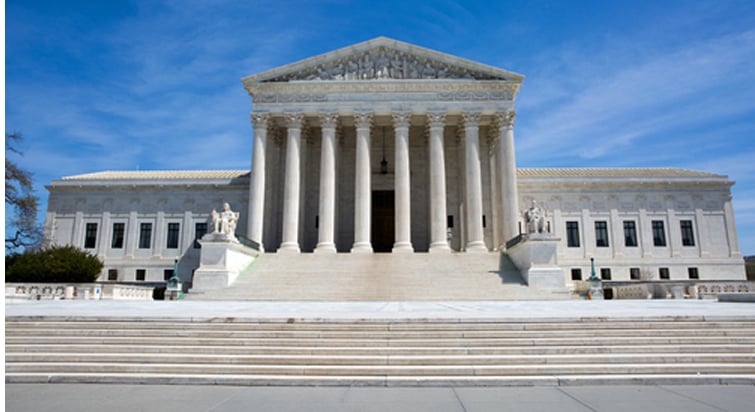Supreme Court considers reach of old law in Microsoft case

Shutterstock.com
The U.S. Supreme Court on Tuesday considered how to apply an old law to new technology during oral arguments on the ability of federal prosecutors to use a warrant to obtain a drug dealer’s emails stored on a Microsoft server in Europe.
The justices are being asked to interpret a 1986 law, the Stored Communications Act. According to the New York Times, the case represents “a clash between the demands of law enforcement and technology firms’ desire to shield the information they collect to protect their customers’ privacy.” USA Today, the National Law Journal, Politico and the Washington Post also covered the arguments.
U.S. Deputy Solicitor General Michael Dreeben argued the law allows prosecutors to obtain the emails because Microsoft is based in the United States. “There is not an international problem here,” he says. “This is largely a mirage that Microsoft has tried to create.”
The lawyer for Microsoft, E. Joshua Rosenkranz, says the law focuses on where the emails are held, and it doesn’t entitle prosecutors to reach emails held on the server in Irleand.
Justice Ruth Bader Ginsburg appeared to side with Microsoft. She was among several justices who suggested Congress should revise the law to make its reach clear.
“In, what was it, 1986, no one ever heard of clouds. This kind of storage didn’t exist,” Ginsburg says. “Wouldn’t it be wiser just to say, ‘Let’s leave things as they are’? If Congress wants to regulate in this brave new world, it should do it.”
Justice Neil M. Gorsuch appeared more skeptical of the government’s position than other conservative justices, according to the Politico story. The Washington Post also noted one of his skeptical comments.
Why wouldn’t the justices “take cognizance of the fact that the information must be collected abroad and transmitted from abroad to the United States before it could then be disclosed? I mean, there’s a chain of activity that’s required here,” Gorsuch says.
U.S. Sen. Orrin Hatch, R-Utah, is chief sponsor of a bill that addresses the issue. According to Politico, the legislation would allow the United States to sign data-transfer agreements with other countries to quickly share information, with provisions for privacy and data security. Hatch was in court for the arguments.
The case is United States v. Microsoft.
See also: Microsoft case underscores legal complications of cloud computing
Corrects typo in fourth paragraph and adds link to magazine story at 9:16 a.m.



